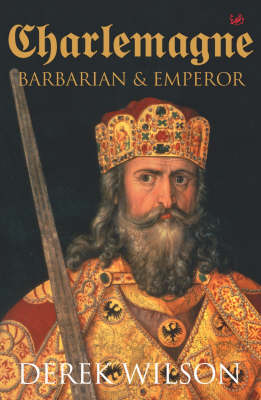The greatest of medieval monarchs, Charles the Great (742-814) towers over every notion we have of national heroes and semi-mythical champions. His military conquests exceeded those of Julius Caesar. He had the sagacity and dedication to public service of a Marcus Aurelius. In ruthlessness, as in dedication to personal culture, he was reminiscent of Augustus. Yet, Charlemagne was a semi-civilised barbarian chief, with no knowledge of classical culture. This looming monolith was a man of contradictions: a champion of the Christian Church who sat loose to its rules; an enthusiast for scholarship who never learned to write; a great conqueror whose empire barely survived his own death; a pietist (later canonized) who freely indulged his animal passions and sired a score of bastards; and an affable companion and a tyrant who could order the execution of 4,500 prisoners of war. His life and achievements form an enthralling narrative. But, that is only the beginning. Charlemagne was a phenomenon and phenomena do not die. Later, European leaders from Frederick Barbarossa and Charles V to Louis XIV, Napoleon I and Hitler took Charlemagne as their model.
His growing mythology inspired the Crusades, fed the concept of chivalry, bolstered absolutist regimes, excited nineteenth-century liberals, and emerges today among those who claim Charles the Great as the founder of European unity. Charlemagne is one of the most remarkable figures in European history: only by understanding him in all his complexity can we begin to understand Europe today.
- ISBN10 0712602178
- ISBN13 9780712602174
- Publish Date 3 August 2006 (first published 4 August 2005)
- Publish Status Out of Print
- Out of Print 15 September 2010
- Publish Country GB
- Publisher Vintage Publishing
- Imprint Pimlico
- Format Paperback (B-Format (198x129 mm))
- Pages 256
- Language English
